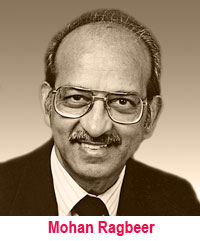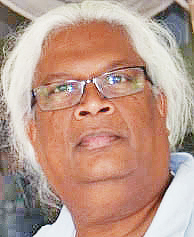Opinions
May’s Charade

The incident occurred on March 4th, and by month end, sentence has already been
carried out. Yet her foreign secretary Johnson, who at the best of times looks impaired, fulminated against Russia’s “denial, obfuscation and delay!” The only flaws in May’s method is that the evidence against the accused has not yet been properly assembled, a trial bypassed, the accused denied a hearing, and what protests and arguments it had, drowned out by the strident bullying by May and her lieutenants. Whatever happened to the hallowed British principle of “innocent until proven guilty”?
The current fiasco recalls modern war-mongering by the USA and Britain. May has out-bushed George Bush in flawed decision-making (Iraq invasion), and matches his and UK’s Tony Blair’s assertions re Saddam Hussain’s stash of WMD (despite investigators’ insistence that he had none, a fact, which Colin Powell, the US Secretary of State, discarded in his mendacious prosecution of Hussain before the UN), and last year’s US-British condemnation, without proof, of Syria’s Assad for use of sarin, a neurotoxin, in the Syrian civil war, an allegation that was soon disproved, the gas released instead by US allies, yet could not prevent Trump’s knee-jerk entry into the war with planes and bombs. Most western press has, sadly, not condemned May’s flouting of due process, and were it not for their nuclear capability, and opposition from Russia, the deadly US-UK duo would have emptied their bomb arsenals on North Korea and Iran, to bring them into the fold of US-UK corporations.
Teresa May, to prop up her sinking fortunes, dredged up the case of one of the victims, Sergei Skripal, a former double agent, on asylum in Britain, having benefitted from a prisoner exchange eight or so years ago, who, with his daughter Yulia, visiting from Russia, were poisoned and now remain in hospital, recovering. Comparisons were made with the 2006 slaying in London, of another Russian spy, Alexander Litvinenko, with radioactive polonium-210. Russia was blamed, but several in the EU wished evidence beyond circumstance. Now, without hesitating to collect and review evidence, May accused Putin and Russia, the foil of NATO, of ordering the crime. It seems like fantasy that Putin would be so reckless as to revisit an exiled agent on the very eve of Russian elections, and to no better purpose than revenge against a traitor. Is it coincidence that the poisoning happened a few miles from Porton Down Laboratories, one of the first and largest poison research facilities in the world, a place as lethal as an A-bomb storehouse on fire? In an interview with the BBC, Vladimir Chizhov, a Russian ambassador, stressed that this lab was only 12 km from the scene of the incident, and Russia did not stock the toxin; May refused Russian investigation.
It seems likely that the source is the Porton plant, at least from the confused and conflicting statements of British officials, revision and deletion of “tweets” to cancel previous gaffes, one reading, “Analysis by world-leading experts at the Defence Science and Technology laboratory at Porton Down made clear that this was a military grade nerve agent produced in Russia.” This was later withdrawn. The outspoken Guardian has published observations that should embarrass May.
It is obvious that western nations are eating away at Russia’s underpinnings, hoping to unseat Putin and so remove a major thorn from their backsides. He has been most resistant to the aggression of the west and thwarted the US-UK’s ambitions in Syria, when they fomented a “civil war”, with partners Israel and some Arab states, likely KSA, UAE and Jordan.
The current action smells of plotting by MI6-CIA-Mossad, the evil triumvirate that initiates and wreaks havoc world-wide, and is busily destabilising societies such as Venezuela, Syria, Iran, Russia, India, etc. – having disposed of Libya and Brazil, and quieted Pakistan – from bases in US and British embassies. How incredibly quickly and without evidence other than the victims’ nationality was May’s venom diffused throughout NATO, as easily as a released volatile poison; is she perhaps reviving the Cold War? The current UN debate is a grand cuss-up, UK vs Russia, and serve only to obscure the truth.
Messenger’s trials, trails,
and tribulations
 Romeo Kaseram
Romeo Kaseram
I wonder what my grandmother would say today, were she still around, about instant messaging and social media. In her day back home in the old country, this being in the early part of the last century, messages moved from one village to the other inside the heads of willing messengers who traveled mostly on foot, sometimes hitching a ride on a cart drawn by an amiable donkey and a grumpy cart-man who dozed at the reins most of the time, leaving it up to the beast of burden’s unerring sober sense of direction to find the way home.
The messenger would hitch a ride with a running leap onto the back of the cart as it swung left, then right, on uneven tires on the undulating, rutted road, the donkey negotiating the potholes in aching slow motion with patient heaving despite the impatient whip. If a donkey cart was a speck in the distance among the sugarcanes, the messenger would brave a “tow” from a passing bicycle. There were three precarious perches for such a hazardous undertaking – sitting on the front handlebar, or on the cross-bar between the front handle and the saddle of the bicycle inside the arms of the labouring rider; or astride behind if there was a grilled tray over the rear fender.
It took a solid pull of courage from a petit-quart rum-bottle and the balance of a tight-rope walker to brave a “tow”, putting one’s life in the hands of the rider, his sobriety and his fine sense of balance, particularly in negotiating the shifting weight of two persons through the murky depths of potholes, and the dips and inclines on the rough, fissured roadway. Then there was the charging of dogs at all four exposed legs, these ferocious animals torpedoing at the bicycle with the single-mindedness of an enraged bull, most of their mouths an arc of sharp, pointed canines, the rest of the animal fueled by territoriality, a lifetime of brutality, and foaming, red-eyed rage. To avoid such a razor-edged charge of teeth meant both the bicycle’s rider and the messenger – the latter now an unwilling pillion-rider with a million regrets – had to lift both legs up and away, positioning the knees behind both ears with muscle-wrenching discomfort and driven by wide-eyed terror.
Such were the trials and tribulations of a messenger bringing news from a far-off village, the message whispered grandly and with a delay that savoured the moment and his sense of importance into the wide receptacles that were Ma’s capacious ears, her eyes widening with anxiety. If the message was favourable, such as the birth of a grandchild, then the messenger would receive a copper coin and a cup of milk for making the trip, along with its danger of mutilation from canine teeth.
However, if the news was bad, such as the untimely passing of a relative, his self-importance would swell but deflate right away, and he would find himself abandoned and having to make do with just a cup of water, sourly serving himself by dipping it out from the rain barrel at the side of the house, his travel-stained fingers impatiently sweeping away the dust on the surface, his gaze piercing and deep into the cup to ensure no accompanying mosquito larvae were wriggling in the sunlight. Rising above his annoyed sipping would be the hoarse bawling of relatives as his news of bad tidings was relayed from cooking fire to cooking fire with a wringing of hands.
Later it came to pass relatives started leaving the villages behind, making the long journey along the rutted roads for one last time headed to New York or Toronto. This meant Ma had to travel to the capital city to talk to her distant children, a day trip made to the main telecommunications building, to where its ground floor was lined with private booths lit with yellow lightbulbs, with a narrow, uncomfortable bench inside and a solitary telephone hanging on the wall. These were the days of the long-distance call, prepaid for with Ma handing over hard-earned dollar bills into the demanding hand of a cashier behind a cage. We then waited in the tension of not knowing how to behave, where to place our hands, whether to look up or down, choosing instead to gaze at our dusty shoes.
A nonchalant announcement from an officious voice to attend one of the numbered booths, and the entire family uncoiled like a spring, squeezing into the narrow space. Ma received the telephone out of respect for what was an expensive, three-minute long-distance call to Toronto or New York. Right away she began wasting valuable seconds in sobbing uncontrollably into the telephone, my more alert and thriftier uncle impatiently taking the receiver away, immediately putting the call to more profitable use, and speaking too loudly to overpower the perceived distance and crackling.
I wonder what Ma would do today with our modern-day “Messengers”, with voice and video almost instantaneous, her children, grandchildren, and great grandchildren smiling at her from continents away. No doubt about it: she would begin sobbing uncontrollably.
